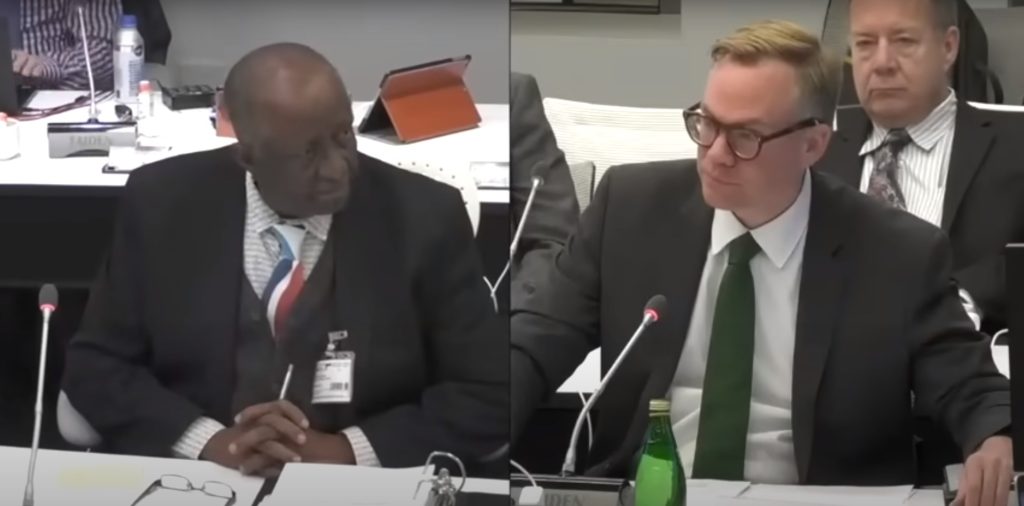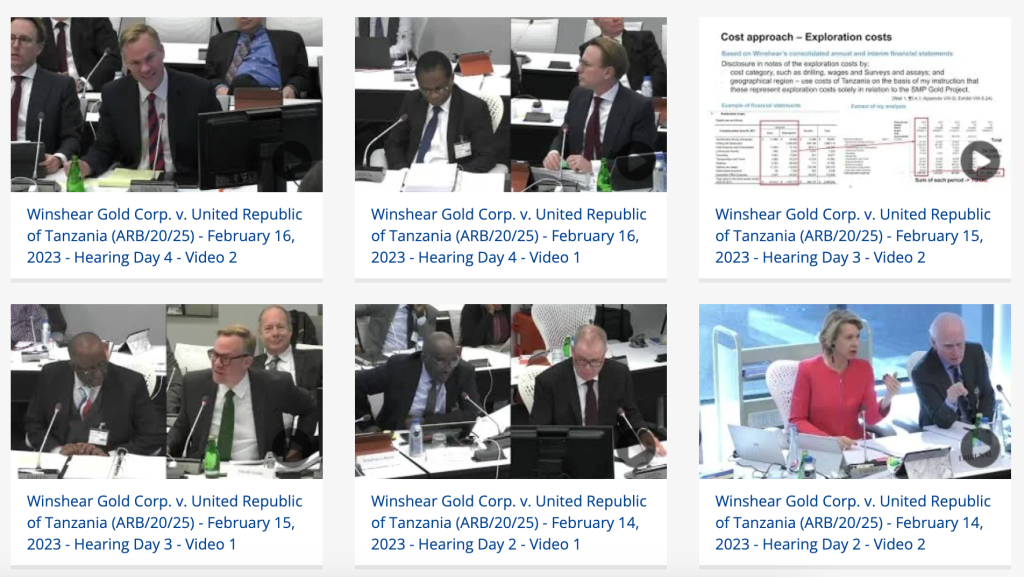Winshear Gold Corp (TSXV: WINS), a Canadian mining company, recently reached a significant settlement agreement with the Tanzanian government. This Tanzania-Winshear Settlement sees Tanzania paying Winshear $30 million to resolve an investment dispute due to the cancellation of the company’s mining retention license. In simple terms, we agreed to pay out of court. Analysts at Tanzania Business Insight suggest, “By settling out of court, the Tanzanian government sought to minimise tarnishing the country’s reputation as an investment destination and avoided a waste of time and large sums of money that would be incurred if the case dragged on until it’s conclusion” – I agree with them. However, it’s worth diving deep, and this article will spotlight what happened, the legal and financial implications and the key lessons for Mining Investors in Tanzania.
So what happened?
Winshear Gold Corp’s disagreement with the Tanzanian government began when their mining retention license was abruptly cancelled. The company had invested significantly based on this license, and its sudden termination disrupted their business operations in the region. In response, Winshear filed a lawsuit against the Tanzanian government, seeking compensation for the losses and damages incurred due to this unexpected move. The revocation of licenses affected Winshear and put other foreign mining operations in the country under uncertainty.
Timeline of Events
Winshear Gold has been active in Tanzania since 2006, exploring and developing the SMP Gold Project. In 2017, the Tanzanian government changed the Mining Act, whereby the Retention License classification, under which the SMP project was held, was abolished. In December 2019, the Tanzanian Government issued a Notice to Tender whereby new investors could bid for projects formerly held under Retention License. Winshear served a required 180-day Notice of Intent to submit a claim to arbitration under the Canada-Tanzania agreement for the Promotion and Reciprocal Protection of Investments and filed for arbitration in July 2020.
The dispute, registered on July 27, 2020, at the International Centre for Settlement of Investment Disputes (ICSID), involves a mining concession and falls within the Oil, Gas and mining economic sector. The claimant, Winshear Gold Corp. from Canada, invoked the BIT Tanzania – Canada 2013 instrument, applying the ICSID Convention – Arbitration Rules. The respondent, in this case, is the United Republic of Tanzania. The tribunal constituted on February 2, 2021, was presided over by President Gabrielle KAUFMANN-KOHLER (Swiss), with arbitrators O. Thomas JOHNSON (U.S.) and Edward William Fashole LUKE II (Botswana). The proceedings were conducted in English.
September 18, 2023, the proceeding was suspended by the parties’ mutual agreement to pursue an agreement out of court.
October 16, 2023: The Tanzanian government agreed with a Canadian mining company, Winshear Gold Corp, to conclude an investment dispute that the foreign company instituted to expropriate an investment property, the SMP Gold Project, in southwest Tanzania. Tanzania agreed to pay $30 million (TZS 76.5 billion) to Winshear to settle out of court.
Our take on Legal Implications
It became evident throughout the arbitration process that the Tanzanian legal team handled the case less than optimal. Their approach, marred by inconsistencies and a need for a robust defence strategy, indicated a certain level of incompetence. This potentially exacerbated the financial burden on the country and raised questions about Tanzania’s legal preparedness in handling such high-stakes international disputes.
Bilateral Investment Treaties (BITs) are cornerstones in international trade and investment. These treaties are designed to provide a framework that promotes and protects investments from one country into another. They ensure that investors are not unfairly expropriated, are treated fairly and equitably, and can seek redress in impartial tribunals if disputes arise.
Tanzania’s breach of these treaties, especially by revoking mining licenses without considering pre-existing BITs, has far-reaching consequences. Such actions can erode investor confidence, leading to reduced foreign direct investment. Investors value stability and predictability, and breaching BITs signals a higher-risk environment.
I’d like you to please watch this short video from the hearing.
Our take on Financial Implications
The $30 million Tanzania-Winshear Settlement has distinct implications for Tanzania and Winshear Gold Corp. For Winshear, this sum represents a significant recoupment of their investments and potential lost opportunities due to the license cancellation. While not fully covering the projected profits from their mining venture, the amount provides a financial cushion, compensating for immediate losses and legal expenses.
On Winshear’s balance sheet, this inflow will likely strengthen their financial position in the short term. It can offset debts, invest in new ventures, or distribute among shareholders. Furthermore, the successful Tanzania-Winshear Settlement might bolster Winshear’s reputation in the eyes of potential investors, signalling that the company can navigate complex legal disputes and protect its investments.
The $30 million payout for Tanzania is a tangible cost of its policy decisions. While the country’s economy is diverse and backed by various sectors like agriculture, tourism, and telecommunications, such payouts can strain its fiscal budget. The Tanzania-Winshear Settlement
also raises concerns about Tanzania’s attractiveness to foreign investors. Frequent disputes and resulting payouts can deter foreign investment, which many emerging economies rely on for growth and development.
Our take on Future Outlook
The dispute and Tanzania-Winshear Settlement between Winshear and the Tanzanian government could set a precedent for other companies facing similar challenges. Given the blanket revocation of mining licenses during President Magufuli’s tenure, other affected companies might take cues from Winshear’s success and pursue their legal redress. Companies with significant investments or experienced notable disruptions due to the policies may be especially inclined to seek compensation.
The landscape presents risks and opportunities for investors eyeing Tanzania’s prosperous mining sector. On one hand, the legacy of past policies and the possibility of lingering disputes may deter some investors. However, with President Hassan’s administration signalling a shift towards a more collaborative and open approach, there might be renewed investment opportunities, mainly if the government introduces reforms to restore investor confidence.
Final thoughts – So Tanzania-Winshear Settlement: Did the $30M Payout Signal Desperation or Diplomacy? I think it’s Diplomacy. How President Samia Suluhu Hassan’s government handled the situation is worth noting. Even though it looked like Tanzania might lose in court, they chose to settle outside of it. This move saved the country some money. More importantly, it shows investors that the current government is open to talking and finding a middle ground. For anyone considering investing in Tanzania, this can be a good sign – it suggests that if problems arise, there’s a chance to discuss and fix things.
Under the leadership of President Samia Suluhu Hassan, Tanzania is on a trajectory towards creating a more investor-friendly environment. President Hassan seems keen on mending relationships with foreign investors and rectifying the confrontational approach of her predecessor. Early indications suggest a potential shift towards policies prioritising economic growth, stability, and a balanced approach to harnessing Tanzania’s natural resources.


